Blog
January 15, 2025
The Banking Conclave 2025, organised by the Bombay Chamber, brought together industry leaders, policymakers, and experts to discuss the transformative role of credit in achieving India’s ambitious $5 trillion economy goal. The Conclave featured thought-provoking discussions, keynote addresses, and insightful panels, focusing on pressing issues in the banking and financial sectors.
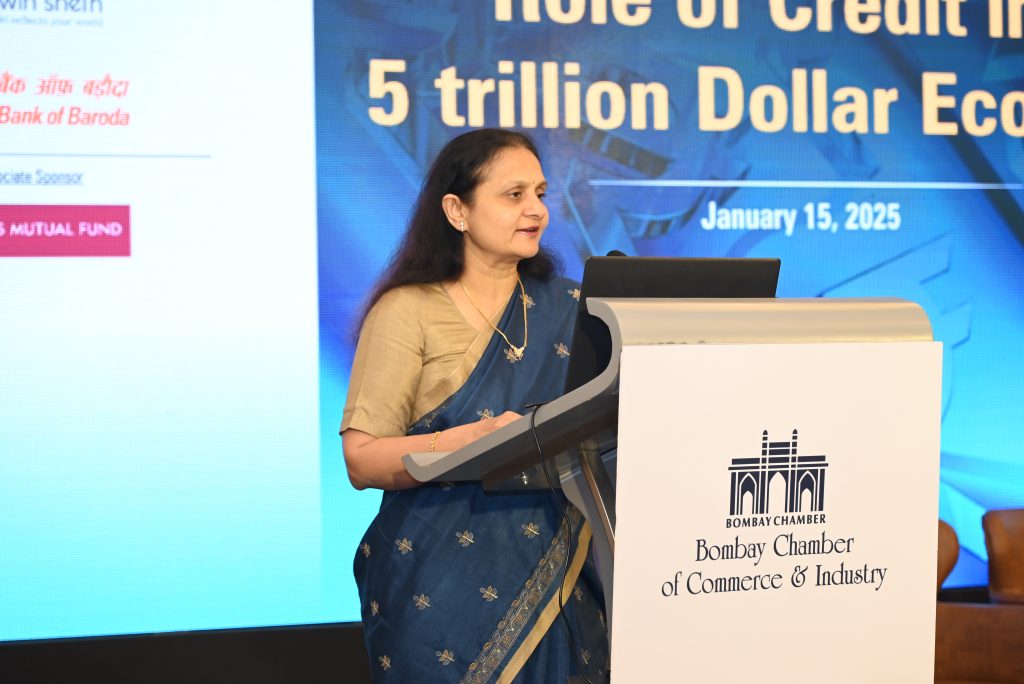
In her welcome address, Pinky Mehta, President of the Bombay Chamber and CFO of Aditya Birla Capital Ltd, emphasised the importance of fostering financial literacy, developing innovative products such as green bonds and social impact bonds, and maintaining a conducive regulatory environment. “By addressing these challenges, we can ensure that credit plays a transformative role in shaping India’s economic growth. This will create a more inclusive, resilient, and sustainable economy capable of achieving the $5 trillion milestone and beyond,” she stated.
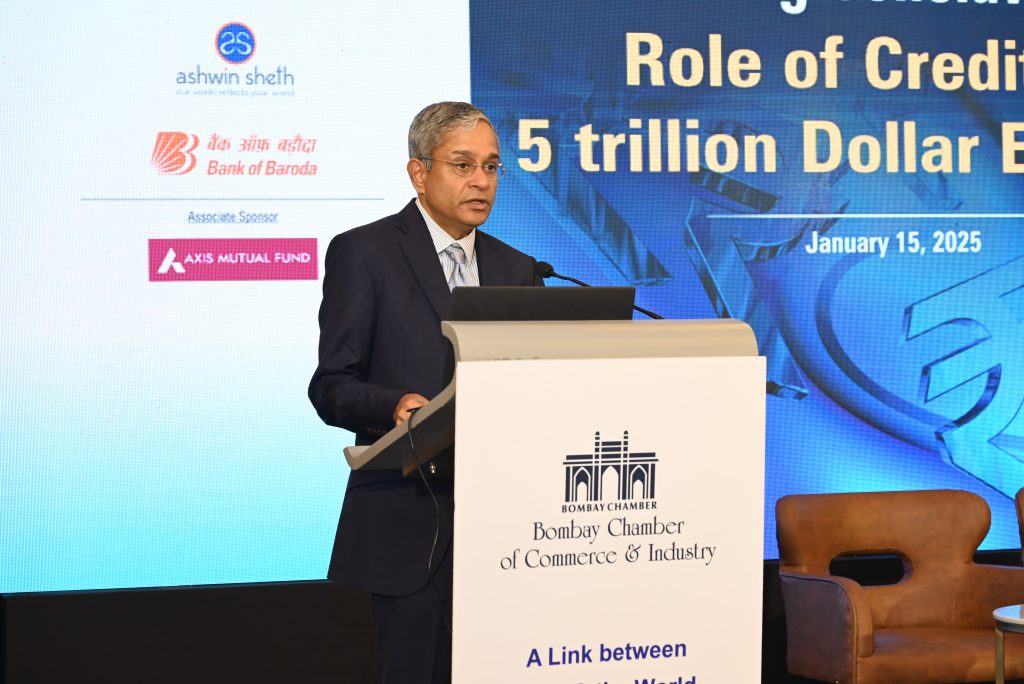
Delivering the Theme Setting note, Rajiv Anand, Senior Vice President of the Bombay Chamber and Deputy Managing Director of Axis Bank, highlighted the integral role of credit in India’s growth journey.
He stressed the need to balance financial innovation with regulatory prudence to ensure sustainable economic development. As the world grapples with geopolitical uncertainties, Anand underscored the importance of maintaining a resilient banking system capable of absorbing global shocks. He also called for a renewed focus on digitisation and financial inclusion, describing them as pivotal in democratising access to credit and fueling the aspirations of India’s burgeoning entrepreneurial ecosystem.
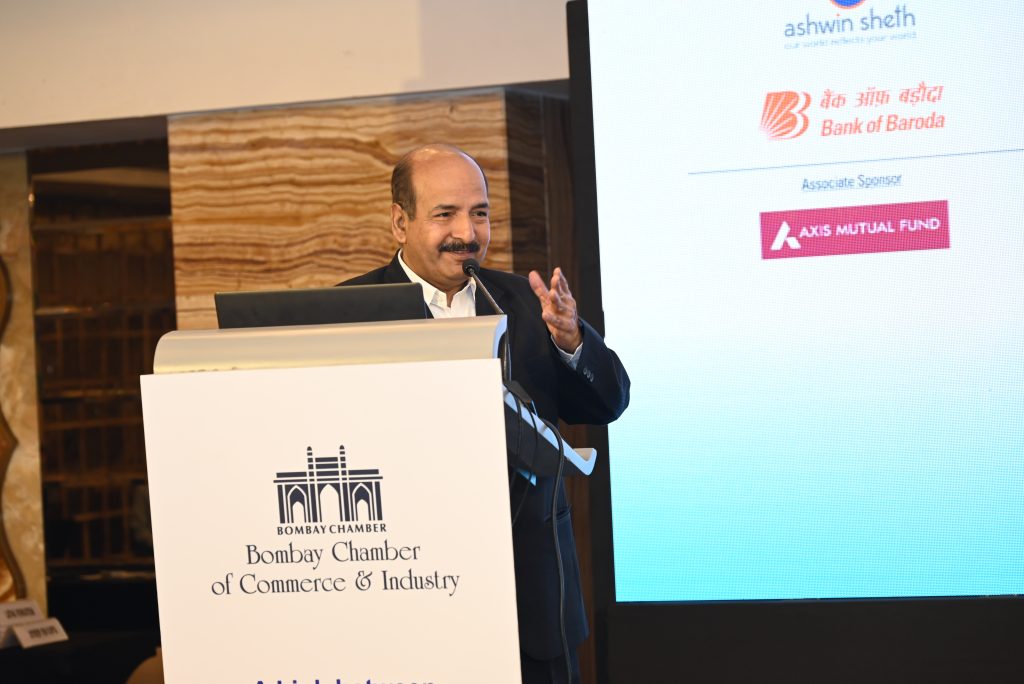
N. S. Vishwanathan, Former Deputy Governor of the Reserve Bank of India and current Independent Director & Non-Executive (Part-time) Chairman of Axis Bank, delivered the Keynote Address. He spoke about the critical role of regulatory frameworks and financial innovation in fostering economic growth. Discussing India’s economic trajectory, Vishwanathan noted that the GDP for FY 2024-25 is estimated at $4.27 trillion, leaving a $730 billion gap to achieve the $5 trillion milestone by 2027-28. “This journey requires more than just ambition; it demands strategic investments and a resilient financial system,” he remarked.
Vishwanathan highlighted the financial health of India’s banking sector, citing strong indicators like a 26% Capital to Risk-weighted Assets Ratio (CRAR) and a Net Interest Margin (NIM) of 5.1%. However, he acknowledged challenges such as rising costs of funds, narrowing gaps between deposit and loan growth, and increasing reliance on high-cost funding. He emphasised the need for innovative financing in agriculture to boost productivity and inclusion, as well as renewed private-sector capital expenditure with a focus on sustainability. “Banks must embrace watchful risk-taking to ensure credit growth does not compromise asset quality. Lessons from past episodes of high NPAs remind us that unbridled credit growth can strain the system, but with a disciplined approach, we can foster a robust credit culture,” he stated.
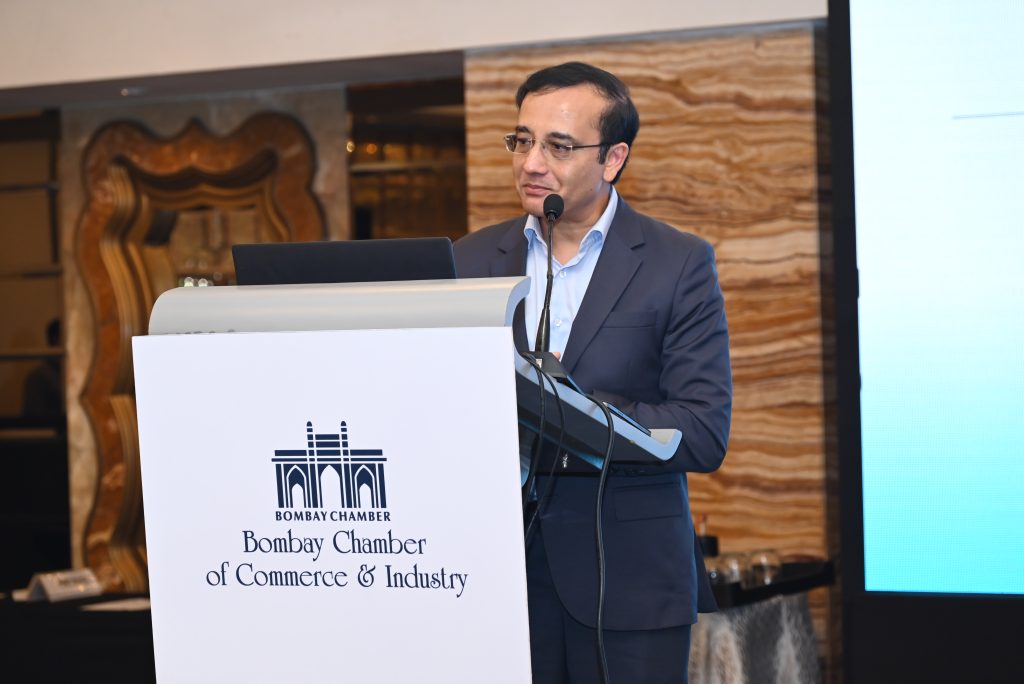
The event also featured a presentation on Global Trends in Banking by Joydeep Sengupta, Senior Partner and Leader of the McKinsey Center for CEO Excellence at McKinsey & Company. Drawing on McKinsey’s extensive research, Sen Gupta highlighted the pivotal role of the banking industry, which generated $1.15 trillion in net income in 2023—equal to the combined net income of the next two largest industries. He discussed the sector’s resilience, evidenced by sustained growth in return on tangible equity and healthy capital levels, while cautioning against rising regulatory pressures and evolving customer expectations.
Sengupta described the transformation underway in the banking sector, fueled by digitisation, artificial intelligence, and shifting customer behavior. “The global financial system intermediated $410 trillion in assets last year, underscoring its immense scale and responsibility,” he stated. However, he noted that despite strong financial performance, the banking industry remains undervalued, with skepticism about its long-term ability to innovate and create value.
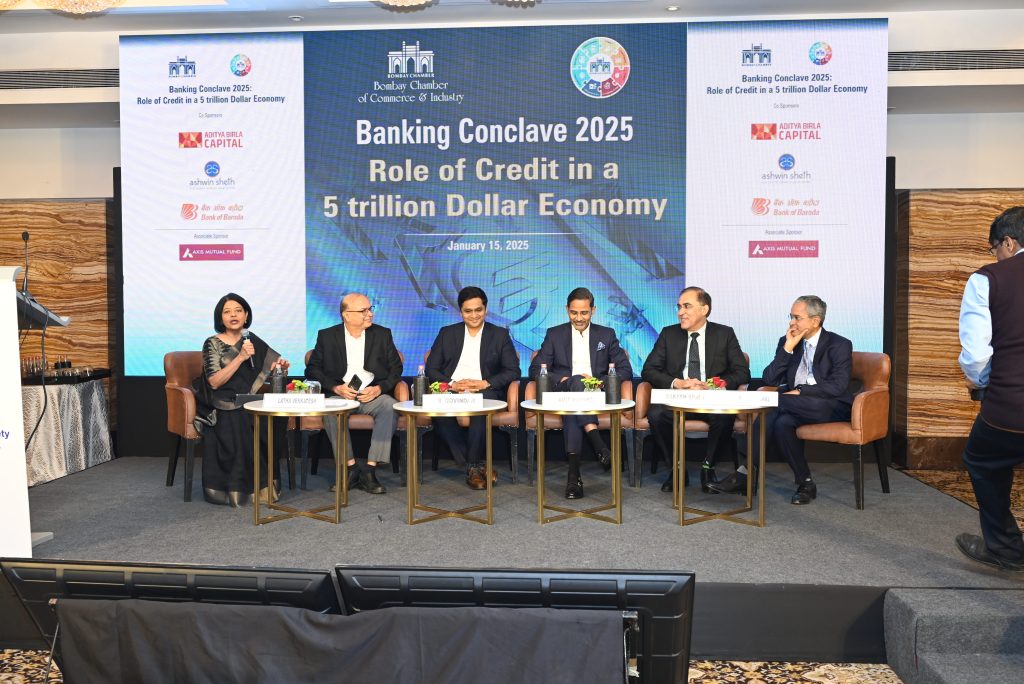
Two panel discussions explored critical topics. The first, on Managing Balance Sheets in a Changing Geopolitical Environment, was moderated by Latha Venkatesh, Executive Editor of CNBC TV18. It featured panelists Rajiv Anand, Senior Vice President, Bombay Chamber & Deputy Managing Director, Axis Bank; R. Govindan, Senior Vice President Corporate Finance & Chief Risk Officer, L&T; Amit Agarwal, President & Head – Private Credit, Edelweiss Alternatives; Rakesh Singh, MD & CEO, Aditya Birla Finance; and Rajiv Sabharwal, MD & CEO, Tata Capital. The discussion delved into the multifaceted impact of geopolitics on growth and financial stability. Panelists discussed the rupee’s depreciation and its effect on credit quality, corporate margins, and the challenges of raising dollar funds in a volatile global landscape.
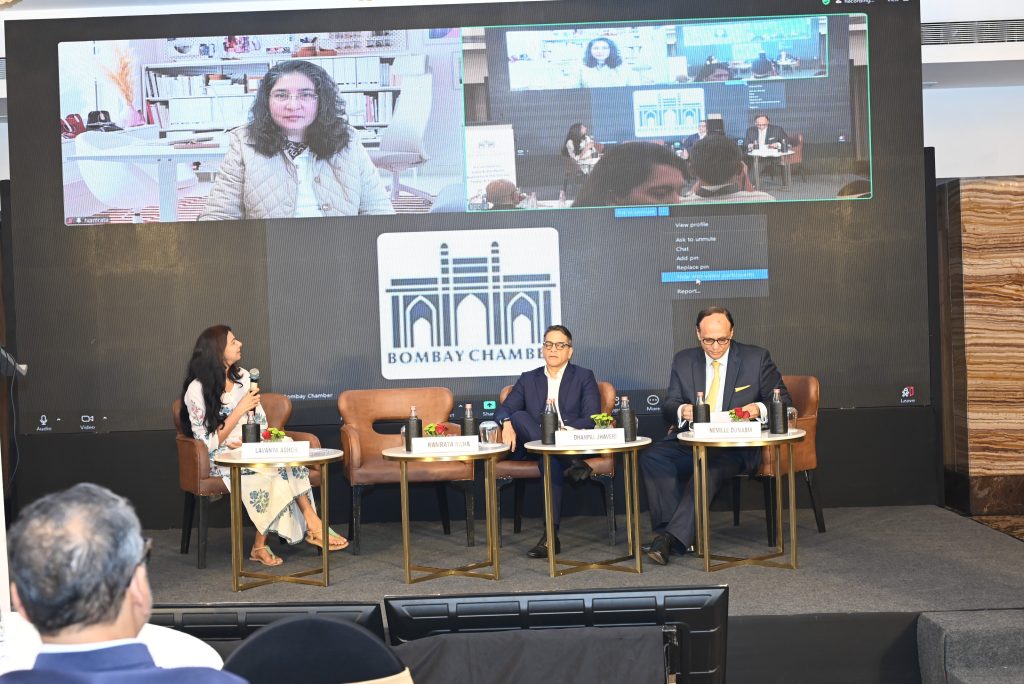
The second panel, on Climate Finance, was moderated by Lavanya Ashok, Partner – Growth Equity at Trifecta Capital. Panelists included Namrata Rana, Partner and National Head ESG, KPMG; Neville Dumasia, Leader – Industrials & Energy, EY India; and Dhanpal Jhaveri, Vice Chairman – Everstone Group & CEO – Eversource Capital. This panel explored the role of innovative financing models, such as blended finance, in scaling climate technologies, and highlighted opportunities in emerging sectors like sustainable agriculture and battery storage.
The conclave concluded with a Vote of Thanks by Abizer Diwanji, Founder of NeoStrat Advisors LLP. Aditya Birla Capital Ltd, Bank Of Baroda & Ashwin Sheth Group were the co-sponsors of the Conclave, while the Associate Sponsor was Axis Mutual Fund.








